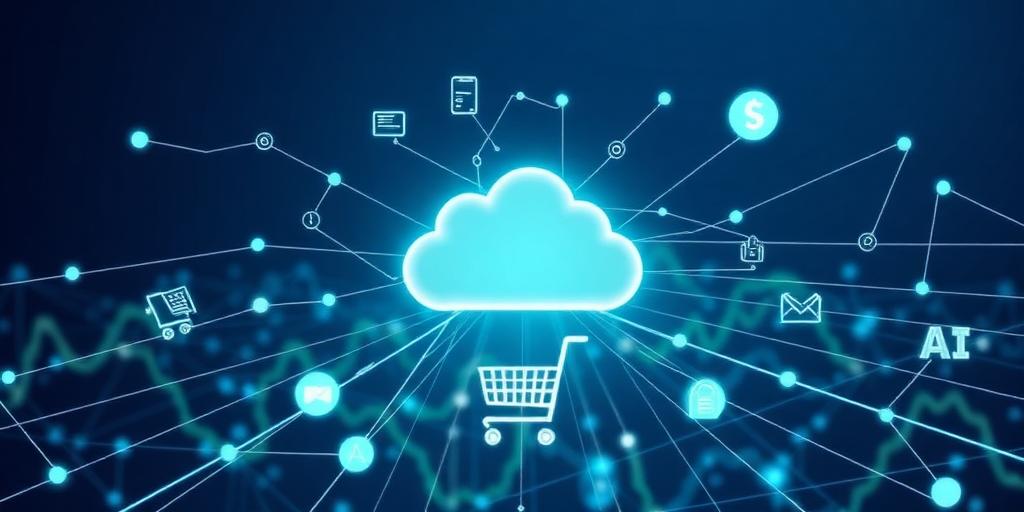The retail industry is undergoing a profound transformation, driven by evolving consumer expectations and the imperative for operational efficiency. At the heart of this evolution lies cloud computing, a foundational technology poised to redefine how retailers operate, innovate, and connect with customers. Far from a mere infrastructure upgrade, the cloud represents a strategic imperative, enabling agility, scalability, and data-driven intelligence essential for thriving in the modern marketplace.
The Cloud as a Catalyst for Omnichannel Excellence
In an era where customers seamlessly transition between online, mobile, and physical touchpoints, delivering a consistent and personalized experience is paramount. Cloud computing provides the robust, interconnected infrastructure necessary for true omnichannel retail. By unifying data from various channels onto a single, accessible platform, retailers can gain a holistic view of customer behavior, inventory, and sales performance. This integration facilitates personalized marketing campaigns, consistent pricing, and streamlined order fulfillment, regardless of the customer’s chosen interaction point. The ability to manage customer profiles, loyalty programs, and purchase histories in real-time across all channels is a significant competitive advantage, enhancing customer satisfaction and fostering loyalty through a truly integrated experience.
Unlocking Data-Driven Insights and Personalization
One of the most transformative aspects of cloud adoption in retail is its capacity to empower advanced data analytics. Retailers generate vast quantities of data daily – from transaction records and website clicks to supply chain movements and social media interactions. Cloud platforms offer the scalable storage and processing power required to ingest, analyze, and derive actionable insights from this colossal data deluge. This capability extends beyond basic reporting, enabling predictive analytics for demand forecasting, inventory optimization, and identifying emerging market trends. Furthermore, cloud-based AI and machine learning tools can process individual customer data to deliver hyper-personalized product recommendations, dynamic pricing strategies, and tailored promotional offers, significantly enhancing conversion rates and customer lifetime value. Leveraging these advanced analytical capabilities, retail cloud adoption trends point towards more intelligent and responsive business models.
Optimizing Supply Chain and Operational Agility
The complexities of global supply chains demand real-time visibility and dynamic responsiveness. Cloud solutions offer a centralized platform for managing everything from procurement and logistics to inventory and store operations. This translates into more efficient inventory management, reduced waste, and improved on-shelf availability. For instance, cloud-connected IoT devices can monitor product freshness, track shipments in transit, and provide real-time updates on stock levels, enabling retailers to react swiftly to disruptions or unexpected demand spikes. The inherent scalability of cloud infrastructure also means retailers can rapidly adjust their computing resources to accommodate seasonal peaks or sudden market shifts without significant capital expenditure, ensuring operational agility and cost efficiency.
The Future: AI, IoT, and Edge Computing at the Forefront
The future of retail technology is inextricably linked to the continued evolution of cloud computing. The seamless integration of Artificial Intelligence (AI) and Machine Learning (ML) directly on cloud platforms will further automate processes, enhance customer service through intelligent chatbots, and power advanced fraud detection. Internet of Things (IoT) devices, from smart shelves to robotic inventory management systems, will generate even more data, which the cloud will process and analyze to create smarter retail environments. Moreover, edge computing, a natural complement to the cloud, will allow for real-time processing of critical data closer to the source (e.g., in a physical store), reducing latency and enabling immediate responses for applications like self-checkout or augmented reality shopping experiences. This synergy between cloud, AI, IoT, and edge computing represents the pinnacle of future retail technology, driving unprecedented levels of innovation.
Conclusion
The trajectory for cloud computing in the retail industry is one of continuous growth and increasing sophistication. It is no longer a question of if, but how extensively retailers will leverage cloud capabilities to navigate a competitive and rapidly changing landscape. By embracing cloud-based solutions, retailers can unlock unparalleled efficiency, foster deep customer connections, and cultivate a culture of innovation, ultimately positioning themselves for sustained success in the digital age. The strategic deployment of cloud computing will define the leaders of tomorrow's retail sector.









